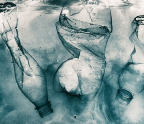
Over recent years, the term “exercise oncology” has emerged to describe the idea that exercise could be considered a form of cancer treatment. The persuasiveness of evidence around the idea was reinforced in 2018 when the Clinical Oncology Society of Australia produced a position statement that hit the headlines globally.
They advised, based on scientific evidence, that exercise should be prescribed to all cancer patients, just like a drug. They went further than this, though: they stated that exercise should be embedded as part of standard practice in cancer care, and they said that to not do so would be harmful.1 Although it perhaps sounds counterintuitive, there is substantial evidence to show that exercise can help people to cope with cancer-related fatigue and, in some cases, to reduce the risk of developing fatigue or lessen the severity.
There are consistencies within the data—particularly in encouraging people to exercise regularly rather than occasionally and at a manageable intensity and duration.
There is also evidence about the positive effects of higher intensity exercise.
There are many psychological and emotional advantages to taking regular exercise. It can help people cope with depression, anxiety and weariness. Running and gardening were my absolute saviors during my diagnosis of




